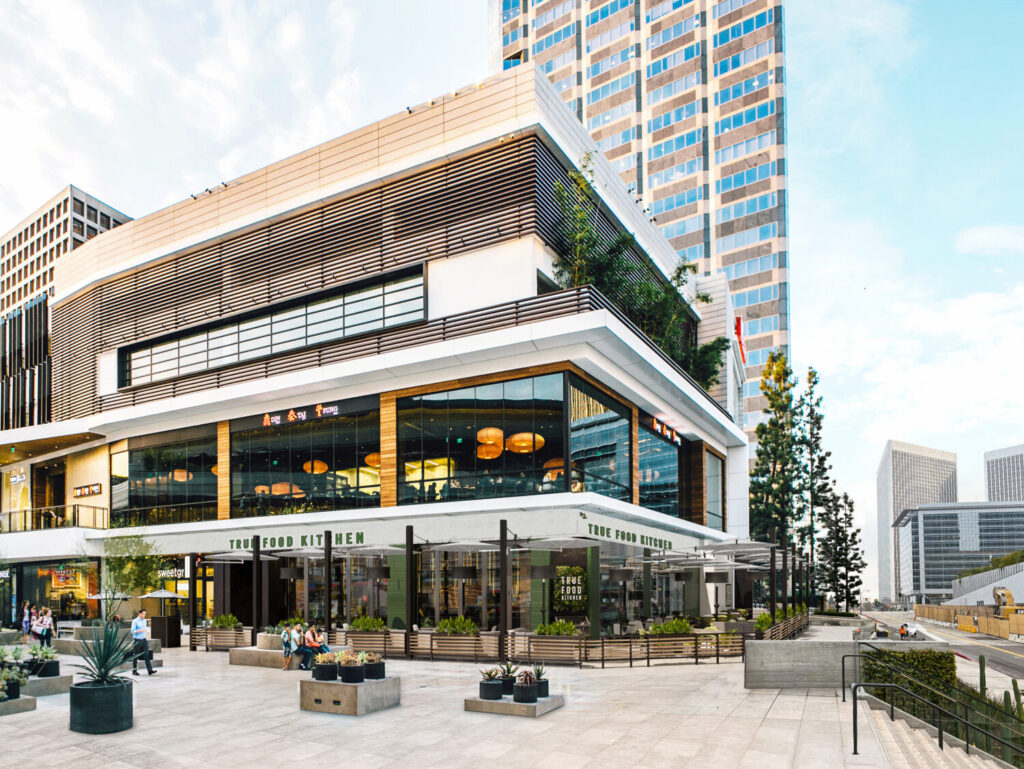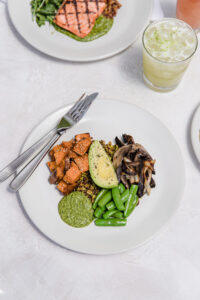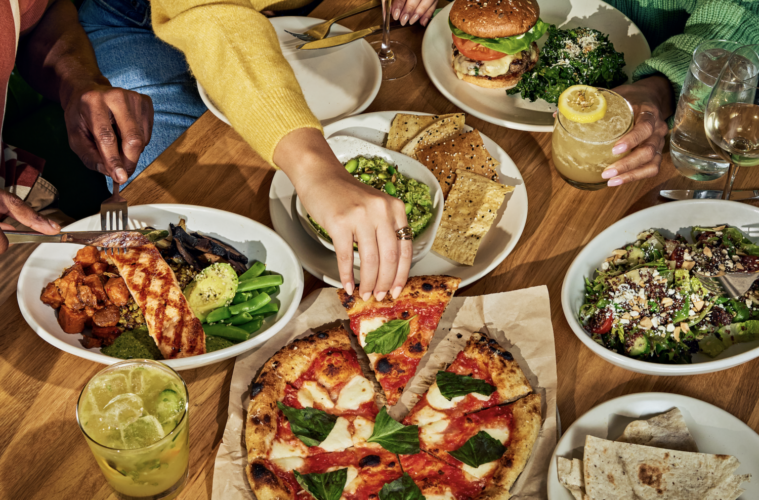It’s been 15 years since the first True Food Kitchen opened in Phoenix, Arizona. With a menu and mantra based on world-renowned Dr. Andrew Weil’s anti-inflammatory diet, the restaurant will open its 44th location in May at the Westfield Century City Mall, below Din Tai Fung.
The lifetime practitioner of natural and preventive medicine, Dr. Weil is the founder and director of the Andrew Weil Center for Integrative Medicine at the University of Arizona, and a pioneer in the field of integrative medicine. His strict diet is often employed by cardiologists as part of heart patients’ recovery programs and the chain continues to grow with sustainable dishes that are influenced by Mediterranean, Asian and Californian cuisine.
We chatted with CEO Scott Bowman about how the kitchen has mushroomed across the U.S.

Rendering courtesy of True Food Kitchen
What do you believe is the secret behind the success of the True Food Kitchen?
The success behind True Food Kitchen began in October of 2008 in Phoenix. Our founder, Dr. Weil, had years of practice convincing people that eating well was the key to a life well-lived, and there need not be any opposition between food that tastes good and is good for you. At the time, most people thought eating healthy meant having a restrictive diet with tasteless options that were boring and expensive, and we began our mission to change that belief. True Food Kitchen was the healthy dining pioneer during a time when healthy food at scale was an anomaly. We proved that kale salad CAN taste good, and that it was possible to strike a balance between emerging nutrition and indulgent dining.
Over time, the landscape has seen an influx of competition and the definition of “healthy” is deeply personal and fractured. Our success has remained for three core reasons: 1.) We are the only restaurant brand that is firmly rooted in nutritional food science, backed by a doctor who created an approachable nutritional ethos (anti-inflammatory diet) that has stood the test of time; 2.) We have culinary experts in every kitchen and behind every bar that work tirelessly to transform superfoods into comfort foods that are both good for you and indulgent and delicious. In our dining rooms, guests can show up as they are and regardless of the wellness journey they’re on, we have something delicious, approachable and palate pleasing for everyone; and 3.) We never take shortcuts in sourcing the highest quality, freshest ingredients. Even during the last few years with supply chain disruptions, we remained steadfast in our commitment to sourcing the highest quality options possible – we believe the foundation of any great recipe begins with ingredients that are held to the highest nutritional, quality and sustainability standards. It is this commitment that has led us to create dozens of delicious, satisfying dishes time and time over the years.

Courtesy True Food Kitchen
How much more aware is the public now about sustainability?
As the world emerges from years of the worst pandemic in a century, many consumers are more mindful about their health and well-being (90% of consumers say sustainability, in general, matters to them and 57% say restaurant sustainability practices are “somewhat influencing” their choices when dining away from home – NRA). That includes the foods they eat, where they come from, and how they’re impacting the planet. And this applies to more than just food and beverages – consumers also are looking for brands that are offering sustainable and eco-friendly materials within their packaging.
At True Food, we are committed to seasonal sourcing, purveyor practices, and environmental responsibility that celebrates the idea of connecting people and planet with the food on your plate. We seek out mission-aligned artisan businesses who produce ingredients that are of the highest quality for both our guests and our planet. This includes the likes of Siete, Vital Farms, Point Reyes Blue Cheese and more.
How do you envision the future of food?
Food has always been at the center of our culture; coming together at a table to share a meal will remain a core means of how we connect with one another. How that is expressed is changing; shifts in the way consumers are enjoying food post-covid have remained steady – the need for convenience and less friction have spiked sales with off-premise. Additionally, guests are looking for food and experiences they can’t create on their own at home. Given the increase in cost of goods impacting both restaurant and grocery prices, consumers are forced to choose their decisions for dining out wisely. A few trends we see for the future of food include: Nostalgic comfort food – while wellness will continue to remain important to guests, enjoying life and foods that are comforting and nostalgic also will be popular.
Global cuisine and ethnic dishes will continue to pop up on menus – these flavors provide an adventure for your palate with unique combinations for culinary creativity. You’ll see these on our menu in Century City in new bowls and entrees. Functional foods also will continue to grow in popularity – these include foods that contain ingredients that work hard at providing both nutrition and other benefits (mood-boosting, relaxation, gut-cleansing, etc.). Adaptogens have been very well-received from guests on our winter menu. Lastly, guests are looking for beverages with less alcohol. Instead of just offering a few NA beverage options, restaurants will be exploring new and innovative mocktails that still allow guests to experience the “act” of drinking without the side effects that alcohol provides.
True Food Kitchen will host a job fair in April and May for prospective employees within its new Century City restaurant. Benefits include competitive salaries, restaurant discounts, professional mentorship and opportunities for growth. For more information, visit www.truefoodkitchen.com/la-centurycity or apply online at www.truefoodkitchen.com/careers/.
Advertising disclosure: We may receive compensation for some of the links in our stories. Thank you for supporting LA Weekly and our advertisers.

